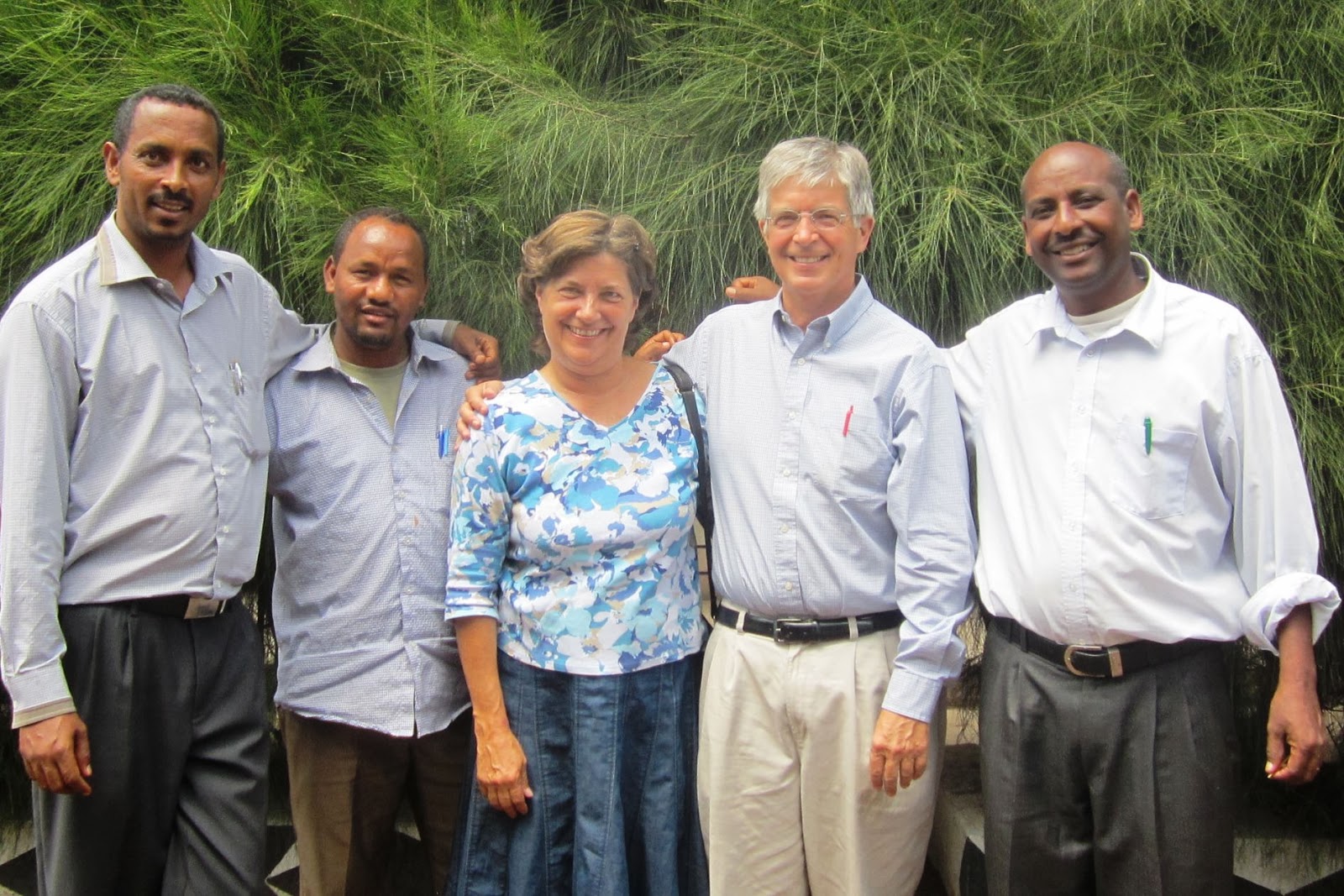We are starting a series of interviews with orphan care workers from all different types of contexts to help you understand this big and complex issue of caring for orphans. We have chosen many different people and asked them all the same questions. We will be sharing their responses with you and we hope it helps give you a better understanding of orphan care.
We are starting with Gary Ifft.
 |
| From L to R: Solomon Negash, Kedir, Peggy Ifft, Gary Ifft, & Temesgen Obsa |
1. In what context are you involved with orphan care?
Here in Ziway and Adami Tulu, Ethiopia, we are operating schools on three campuses. Contrary to most schools around the world which prefer the smartest and most able to pay, we give priority to orphans and vulnerable children. Many times, the number of orphaned and vulnerable applicants fills the entire enrolling class, leaving little room for those we would normally desire to select.
In addition, we have a home for vulnerable children, named Samuel’s Home, where we are raising ten kids in a family environment, with a real mom and dad. All ten children came to us from very dire circumstances, but now are interacting as normal brothers and sisters, going to school, going to church, and participating in other normal child activities.
2. In your current context, what do you see as the biggest need?
Always, the highest priority item we need is prayer—prayer for wisdom for us and all those who impact the children’s lives. That means the Samuel’s Home parents, the school teachers and administrators, and everyone who influences a child in any way.
3. What is one thing that you wish other people would know about orphan care?
We often see that many people feel the only way to solve the “orphan crisis” is to adopt a child from a developing country. We wish people would understand that much of the time the better solution is to provide the orphans and vulnerable children a chance to succeed in their own country. There they are familiar with the language, the culture, the food, etc. They fit in naturally. By educating, encouraging, and nurturing them, they can grow up to be the scientists, engineers, nurses, entrepreneurs, etc. that can improve their country of birth, as well as themselves.
4. What is one resource you would recommend and why would you recommend it?
This is not meant to be a flippant answer, but the best resource for dealing with the orphaned and underprivileged is the Bible. It gives many teachings as to how to deal with the less fortunate segments of society. If responsible persons in all countries and cultures were to follow the Scriptural guidelines, these types of problems would be greatly diminished.
5. What advice would you have for Village to Village Intl. as we seek we seek to make a difference in the lives of children?
As your ministry expands to encompass more children, more countries, and more caregivers, be sure you really know who you are dealing with. It’s hard work, but the time spent on research and referrals is worth it. There are a lot of less-than-honest people out there who want to partner with Westerners only to enrich themselves.

Good insights!
Thanks Dorcas